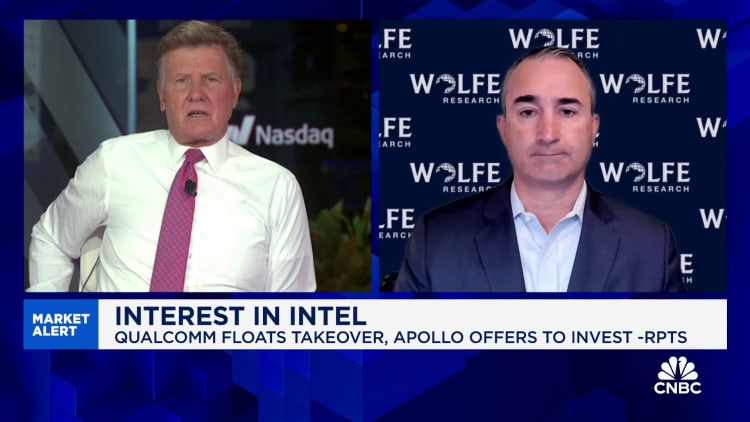Pat Gelsinger, CEO, of Intel Corporation, testifies during the Senate Commerce, Science, and Transportation hearing on semiconductors titled Developing Next Generation Technology for Innovation, in Russell Senate Office Building on Wednesday, March 23, 2022.
Tom Williams | CQ-Roll Call, Inc. | Getty Images
Intel is looking to sell at least a minority stake in its Altera subsidiary that would raise several billion dollars in cash for the struggling firm, according to people familiar with the matter. This move that would represent a sharp about face from its earlier public messaging about the larger company’s prospects.
The storied semiconductor firm has made overtures to a number of private equity and strategic investors this week, said the people, who requested anonymity to speak freely about confidential information. Intel has expressed to some of those investors that it would be possible to acquire a majority stake in the Altera business, which was valued at $16.7 billion when Intel acquired it in 2015, said one of the people.
Intel is looking for a deal that values Altera at around $17 billion, said the people.
A representative for Intel declined to comment. The sale process represents an abrupt about-face from Intel’s prior commentary on Altera, where as recently September its CEO said that Intel’s leadership considered the business to be a core part of Intel’s future.
Intel has previously said that it could look to monetize its Altera business via an initial public offering, possibly as soon as 2026. But the idea of taking strategic or private equity investment would be a marked acceleration of those plans.
CEO Pat Gelsinger and his leadership team have previously said that Intel understands its disadvantaged position and is working aggressively to remedy it. To be sure, the sale of a minority stake in Altera would allow Intel to more easily pursue its semiconductor fabrication ambitions and assuage investors that it has a strong path forward as an independent company.
But the sale process also comes as Qualcomm has expressed interest in acquiring its onetime rival, a deal which would face fierce regulatory scrutiny and reshape semiconductor industry. Intel has to grapple with a significant debt load, and has seen its stock plunge more than 50% year-to-date.

This is breaking news. Please check back for updates.




